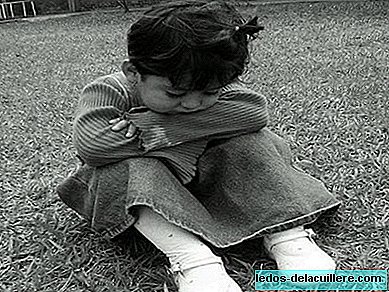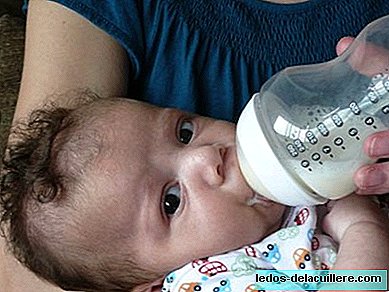
Depression in children is a mental disorder that is increasingly common in our environment and that, however, is rarely diagnosed. Let's analyze what are the circumstances that increase the chances of developing childhood depression.
This, taking into account that it is a complex disease that has multiple risk factors, which sometimes interact with each other and can have a cumulative effect.
The Clinical Practice Guide on Major Depression in Children and in Adolescence, which aims to improve clinical decision making based on scientific evidence, makes a detailed study of depression in children and adolescents.
Regarding the risk factors for a child to suffer from depression, two large subsections are made: family and environmental factors on the one hand and individual factors on the other, on which we will return later.
Family risk factors for childhood depression
Family factors and the social context could play an important role in the development of depression, fundamentally those that are beyond their own control, that occur as an unpredictable event and that are recurring over time.
Depression in parents is considered an important risk factor, which is associated with depression in their offspring, so there would be associated genetic factors. It has been seen that the children of parents with depression are three to four times more likely to develop mood disorders.
Family alcoholism It has also been associated with a higher probability of depression.
The family context in which the child or adolescent lives seems to play a transcendental role in the development of depression. The most common risk factors are the existence of marital conflicts or emotional difficulties between a parent and the child.
They are also risk factors associated with depression, different forms of abuse such as physical, emotional, sexual abuse and neglect in care, as well as negative life events, conflicting divorce or separation from parents, loss of friendships and the death of a relative or friend.
The work of parents away from home, low income or living in disadvantaged areas, if they occur independently, do not seem to present a strong association with the development of depression in children or adolescents.
Risk factors related to the environment
Youth depression is often associated with the existence of interpersonal conflicts and rejection of different members of their social environment, which increases social relationship problems. In this way, Children and teenagers with few friends they are more likely to develop depression, as well as behavioral disorders and greater social isolation.
Other factors also associated with a greater number of depressive symptoms are living in family structures different from those of biological parents, health problems in adolescents, or a poor adaptation to family, friends, school, work and partner.
There does not seem to be an association between living in rural or urban areas.
Harassment by peers or bullying and humiliation (such as degrading treatment, mockery in front of others or feeling ignored) are also risk factors for depression.
Children and adolescents at high risk of presenting mental disorders, including depression, homeless, inmates in shelters, refugees and those with a history of crime, especially those held in security institutions, should be considered.
Finally, nicotine addiction, alcohol abuse or illicit drug use are also considered risk factors associated with depression.
Reading all the points indicated, we could say that very few children would be excluded from all the risk factors, but that does not mean that they will all develop depression.
It is unlikely that a single factor can explain the development of depression, reduce the probability of occurrence or that its control is sufficient to prevent depression, so the particularities of each case will have to be considered.
Remember that risk factors are not necessarily the causes, but are associated with the event, and have predictive value.












